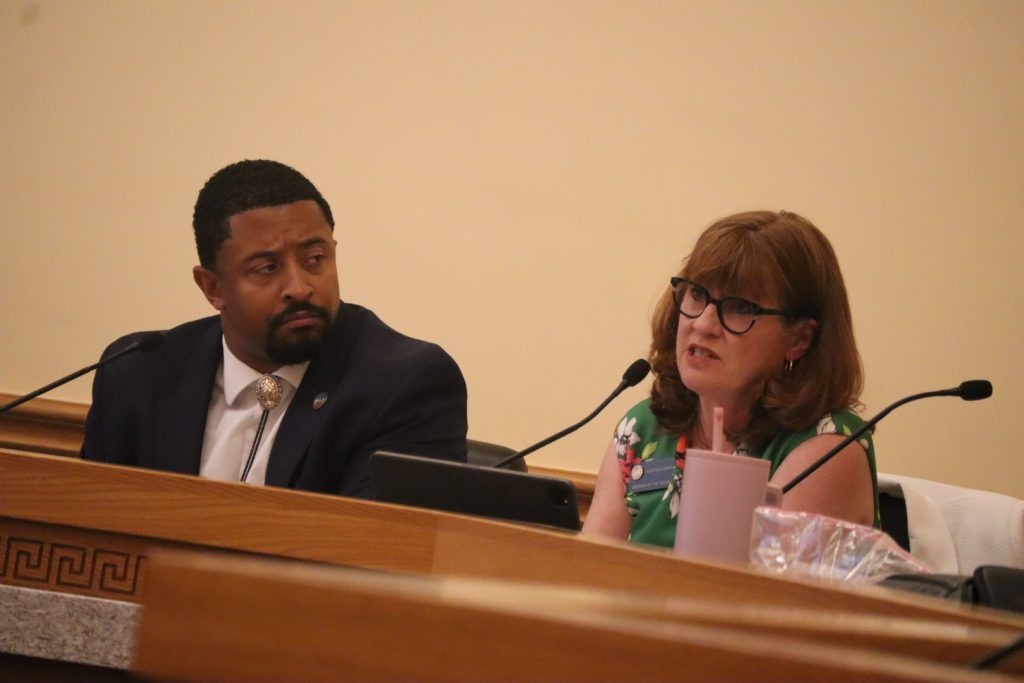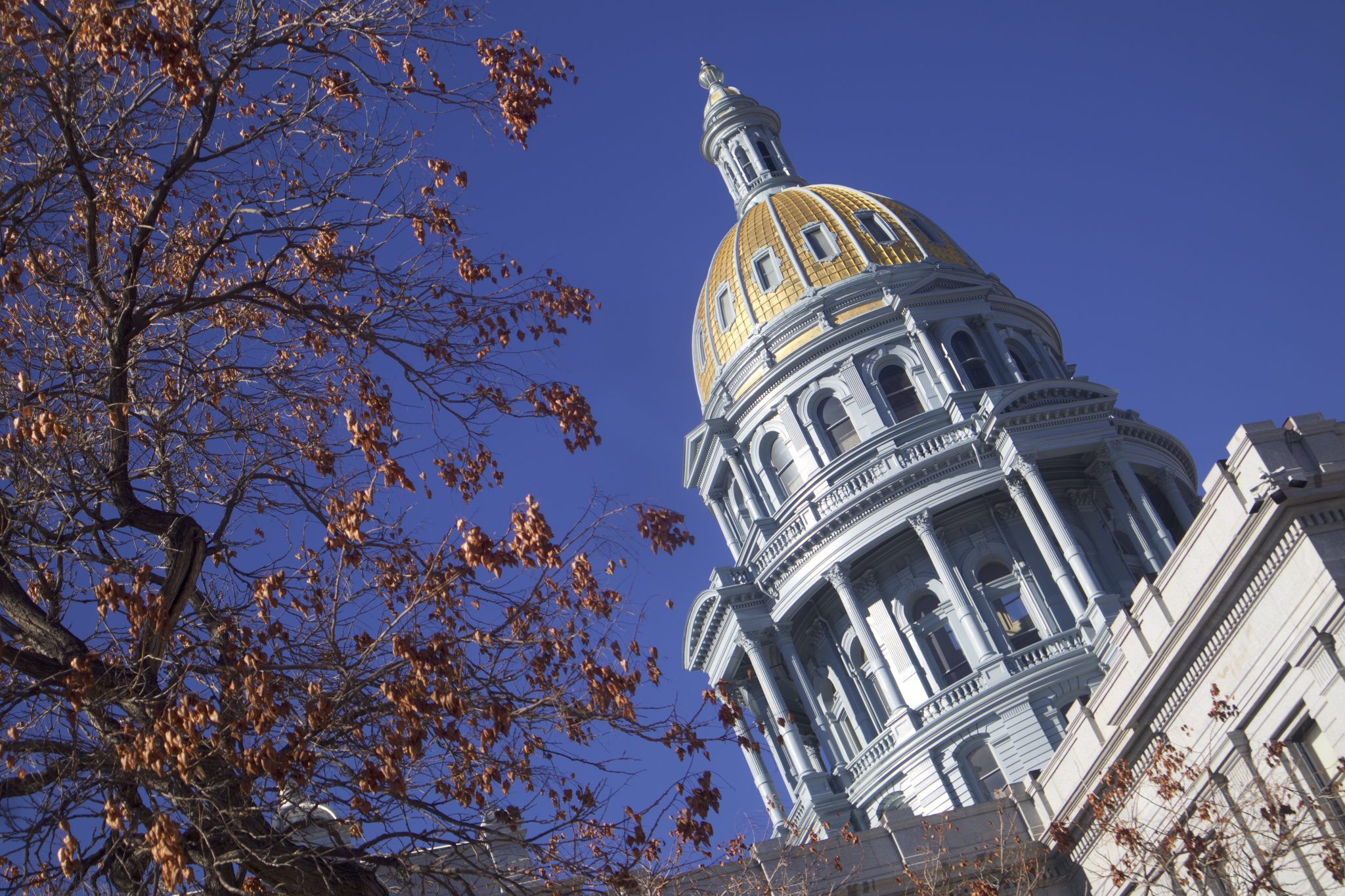Colorado faces another $1 billion budget hole as GOP tax cuts take hold
Lawmakers question whether to dip into reserves to close some of the shortfall that is largely driven by corporate tax breaks

Robert Tann/Summit Daily News
Colorado lawmakers will need to slash roughly $1 billion from the state’s current budget to offset federal tax cuts passed under congressional Republicans’ sweeping policy bill, according to fiscal analysts.
State leaders heard from economic forecasters on Wednesday about the impacts of Republicans’ and President Donald Trump’s “big, beautiful bill,” which was signed into law on July 4.
Projections show the legislation could reduce current state revenue by nearly $1.2 billion, and lawmakers would need to cut about $950 million in order to keep their current budget balanced.
Lawmakers were already faced with a $1.2 billion shortfall earlier this year, which they managed to close by shifting around fund accounts, cutting some non-essential programs and reducing spending on roads.
Now, they’ll need to act fast to avoid a devastating budget scenario, forecasters said.
“We don’t have enough revenue to meet the obligations that we have,” said Mark Ferrandino, the director for the governor’s Office of State Planning and Budgeting. “We don’t have the cash on hand.”
The bulk of the revenue losses is being driven by a suite of corporate tax breaks that were set to expire at the end of this year, but were made permanent under congressional Republicans’ new law. The legislation also expands certain tax cuts.
Taken together, the measure is expected to reduce taxable corporate income in Colorado by 30%, Ferrandino said. Other tax changes for families and individuals, such as an annual deduction of up to $25,000 for income derived from tips, set to last through 2028, will have a smaller impact on the state’s overall revenue.
Ferrandino said Colorado is more susceptible to the budget impacts of the tax bill compared to other states because it automatically conforms to the federal tax code, while some states can opt in to certain changes.
“I’m really struck by this,” said Colorado House Speaker Julie McCluskie, D-Dillon. “I’m particularly shocked that our congressional delegation would’ve voted for a bill that has this kind of impact to us.”

Colorado’s federal lawmakers in Congress were divided on the bill along party lines. All four Republicans in the House voted for it, while all four Democrats were against it. The state’s two Democratic senators, Michael Bennet and John Hickenlooper, also opposed the legislation.
Lawmakers had warned for months that if the GOP tax bill passed, they’d be hard-pressed to find ways to offset the budgetary impacts and would likely be forced to cut essential programs and services.
And while tax revenue losses from the GOP law are projected to be smaller in future fiscal years, gradually decreasing to around $244 million by 2033-34, the state is expecting to incur greater expenses in future years as new federal spending cuts take effect.
Lawmakers’ greatest concern is Medicaid, which is projected to lose $1 trillion in federal funding through 2034 as a result of the GOP’s tax law. Ferrandino said that the annual lost Medicaid revenue in Colorado could eventually balloon to $3 billion.
The revenue impacts will mostly come from the federal government shifting more of its Medicaid costs onto states, and by capping hospital provider fees, which states like Colorado use to pull in more matching federal funds.
Most of the major Medicaid changes, however, aren’t slated to go into effect until the start of 2027.
“One of the big choices that the legislature in the future will have is, ‘How do we deal with issues around the hospital provider fee and paying for rural hospitals,'” Ferrandino said.
While Colorado Democrats have lamented the tough funding decisions they say will need to be made to deal with the fallout of the GOP tax and spending cut law, Republican leaders have criticized what they say is an unsustainable budget path that the state has been on.
Senate Minority Leader Cleave Simpson, R-Alamosa, asked Ferrandino if the tax law is “just compounding the structural deficit that this body’s been aware of for several years? Colorado’s on a pattern of spending that could not be supported by (the) revenue stream.”
Colorado is under unique budget constraints, unlike other states, because of the Taxpayer’s Bill of Rights, a 1992 voter-approved amendment to the state constitution that limits government revenue to the rate of population growth plus inflation. In years when the state takes in revenue that exceeds that cap, it refunds it to taxpayers.
Ferrandino said the billion-dollar deficit being caused by the federal tax law, however, is a unique situation, though he said the state’s ongoing budget issues will “get worse” as a result.
“Yes, we have a structural deficit. We need to look at how we deal with the demand of growing expenses … that is growing faster than our available resources,” Ferrandino said. “What we’re talking about here is a one-year significant revenue hole.”

As lawmakers pressed for solutions, some raised the idea of tapping into the state’s reserves, which currently sit at around $2.3 billion, equal to 15% of the state’s general fund. Using reserves has historically been seen by lawmakers as a last resort, such as during the initial phase of the COVID-19 pandemic.
“Is it appropriate, in this moment, to use some of the reserve?” McCluskie said. “I’m concerned about dropping below 15%, but I’m also concerned about a $1.2 billion hole in the budget.”
Ferrandino cautioned against using the reserve to offset all of the deficit, which he said would take levels to 9%, something that wouldn’t be enough to weather a “moderate recession.” Analysts have encouraged reserve amounts of upwards of 20% in the case of a recession.
Still, he said lawmakers could look at tapping some of the reserve, around 2% or 6%, to cover some of the shortfall.
“We have a reserve to deal with shocks to the system,” Ferrandino said, “and I would say (the tax bill) is a shock to the system.”
House Minority Leader Rose Pugliese, R-Colorado Springs, asked if the budget issues could be addressed through supplemental budget amendments, which would happen during the next legislative session that starts in January. The current fiscal year budget runs through June 30, 2026.
Ferrandino said lawmakers should act quicker than that, saying, “Every day we wait, the deeper the cuts we will have to make.”
Lawmakers could deal with some of the budget fallout during a special session, which the governor is weighing and could call within the next few weeks, Ferrandino said.

Support Local Journalism

Support Local Journalism
As a Summit Daily News reader, you make our work possible.
Summit Daily is embarking on a multiyear project to digitize its archives going back to 1989 and make them available to the public in partnership with the Colorado Historic Newspapers Collection. The full project is expected to cost about $165,000. All donations made in 2023 will go directly toward this project.
Every contribution, no matter the size, will make a difference.










